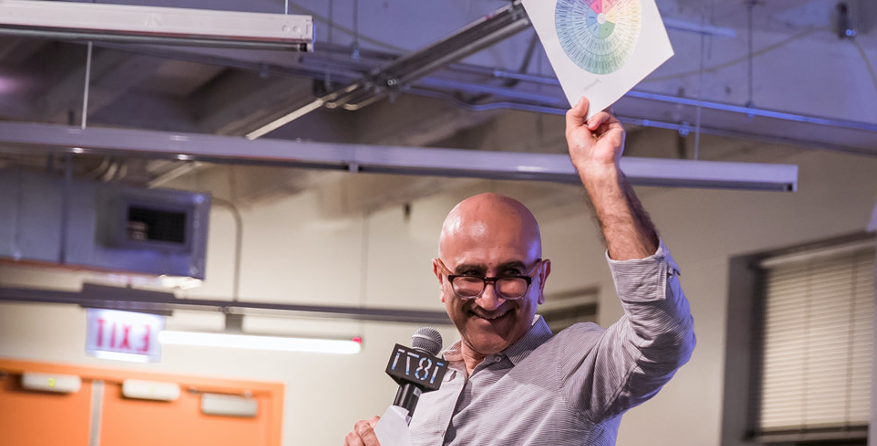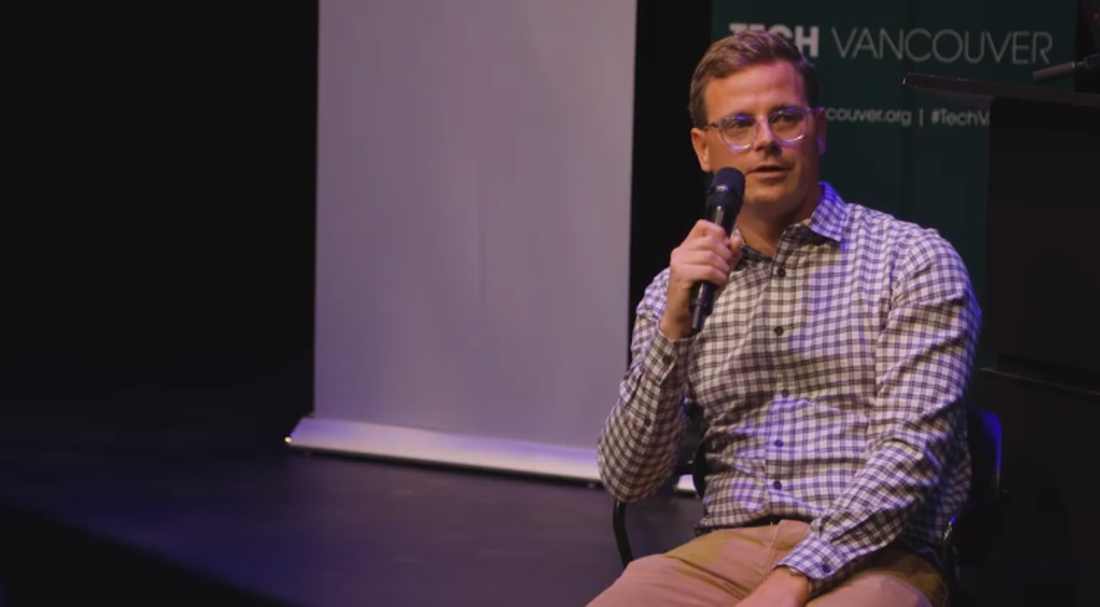
Many founders strive to improve their leadership, but don’t yet realize they need a solid foundation. In this session, you will learn a systematic and proven framework for building better leadership skills: the brain science behind it, emotionally intelligent behaviors that support it, and practical ways to use it in your daily work.
It’s often assumed that great leaders are born, not made. But according to scientific research and the lived experience of many successful leaders, that couldn’t be further from the truth.
Effective leadership comes with a key underlying trait: emotional intelligence. And that can be cultivated over time through practices and techniques that draw out a leader’s ability to collaborate effectively, negotiate change, and help others do their best work.
“Our definition of leadership is moving people in the direction you’re going,” says Raman Chadha, Founder and Managing Partner of the Junto Institute. “We talk about the physical moving, which is the work that people do in sales, customer service, et cetera. But then there’s also the emotional moving, which is inspiring people, building strong relationships and helping them grow.”
At The Junto Institute, Chadha helps founders grow into next-stage leaders through structured and designed leadership development programs.
Register to Raman’s full webinar and find out if you qualify for full Founders Network membership and learn ways to:
- Build self-awareness
- Practice self-management
- Cultivate social awareness
- Manage Relationships
- Navigate Change
“The relevance of emotional intelligence to leadership is backed up by plenty of scientific research and there’s a framework for building it,” Raman says.
“Emotional intelligence is a learned set of skills, and research has proven that we have an unlimited capacity to develop emotional intelligence over time.” - @RamanChadha Share on X“Emotional intelligence is a learned set of skills, and research has proven that we have an unlimited capacity to develop emotional intelligence over time,” Raman explains. “In fact, even people who don’t work on it become more emotionally intelligent as they age.”
The first building block of emotional intelligence is self-awareness. This can often take years to develop, but there are techniques that emerging leaders can take up to nurture self-awareness, and it can begin with journaling, yoga, mediation or “simply checking in with themselves,” Chadha says.
Self-awareness includes self-confidence, but the latter isn’t about bravado or an inflated image of your abilities. Rather, it’s having clear expectations of yourself, what you can and can’t do, and how you may relate to others.
“Self-confidence is having an accurate sense of our strengths and our limits, as well as having clarity of values and purpose.” - @RamanChadha Share on X“Self-confidence is having an accurate sense of our strengths and our limits, as well as having clarity of values and purpose,” Chadha says. “For instance, one of the ways we can do that is to ask others how we are perceived, rather than asking people what our strengths are. That takes away the pressure that others might feel, and provides some qualitative information from which we can draw conclusions.”
Yet self-awareness only takes you so far. Amid the stresses of building a startup, founders often find themselves seeking ways to better regulate how they relate to others. And that can be achieved through emotionally intelligent behaviors — as well as practical, technological solutions that founders and team members can integrate into their communication channels.
“In the workplace, we sometimes have hard, difficult relationships with people,” Chadha adds. “There are people who trigger us, but when we start to understand what our triggers are and what our reactions are to those triggers, we gain the awareness to start thinking about how to create a space between the trigger and the reaction. That way we no longer react, but instead actually have room to respond.”
Self-awareness and self-management are just part of the necessary foundation of effective leadership.
Over time, founders can also hone their social awareness — how well they pick up on others’ emotional cues, what their needs are, and how they can draw out teammates’ best work — as well as how to manage those critical relationships in the workplace.
“Emotional intelligence has been scientifically linked to be the single biggest predictor of effective leadership.” - @RamanChadha Share on X“The way that we are able to emotionally move people is through our emotional intelligence competencies: How do we adapt it to change and ambiguity? How do we demonstrate integrity? How do we collaborate with people? How do we read relationships, and how do we demonstrate empathy?” Chadha adds. “Emotional intelligence has been scientifically linked in being the single biggest predictor of effective leadership.”






